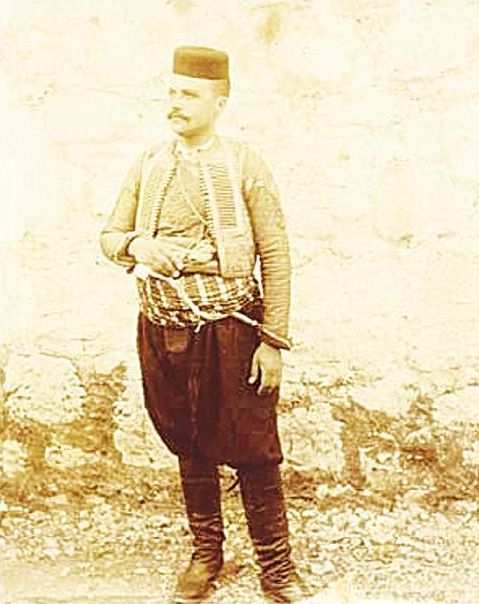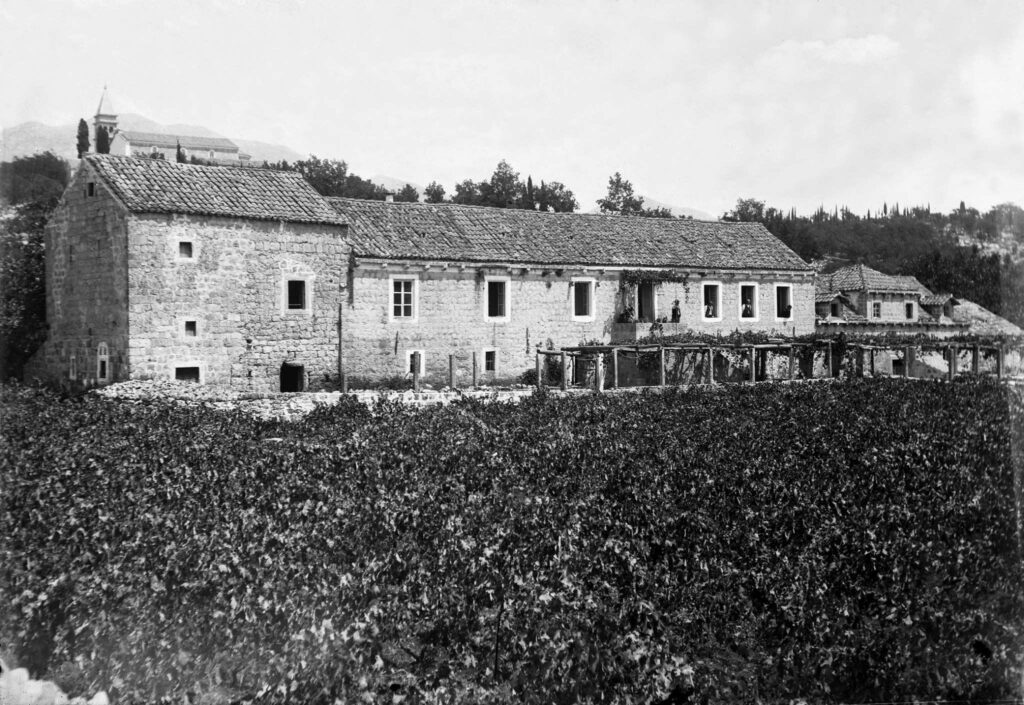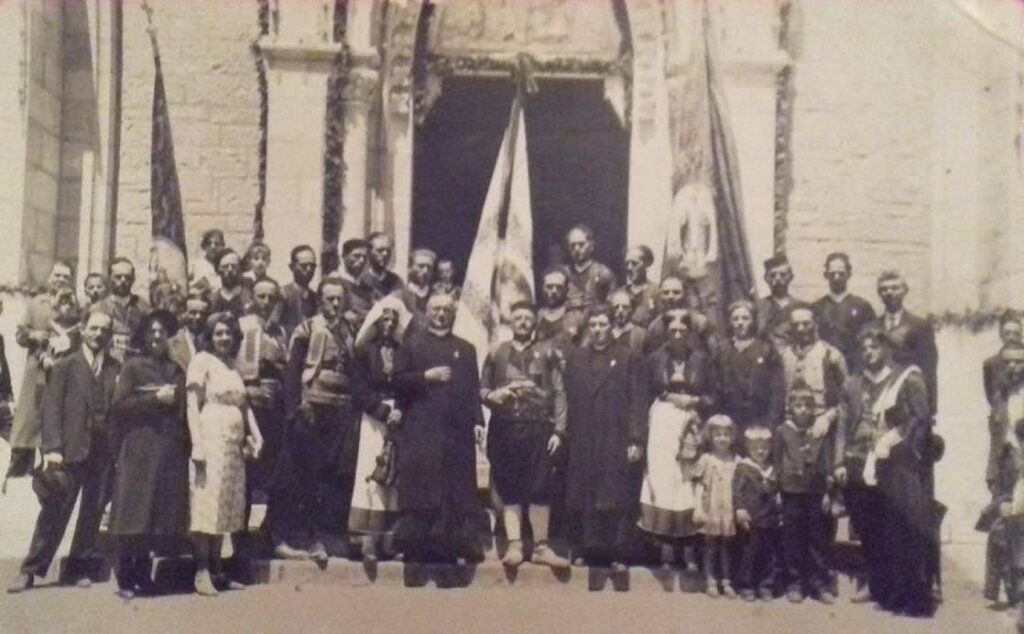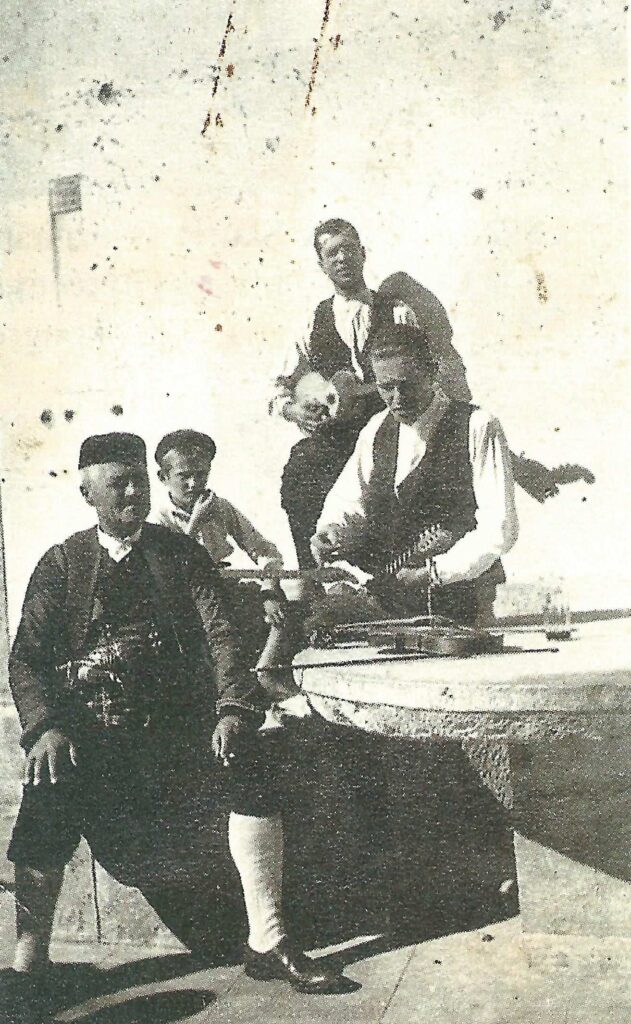One of the key figures who marked the social life of Konavle, and especially Čilipi, with his versatile work from the beginning of the 20th century until his retirement in 1929, was the famous Čilipi teacher Niko Skurić. Through pedagogical, educational, cultural, political and economic work and engagement, he greatly improved and shaped the intellectual atmosphere of the up-to-then cautious and change-minded people from Konavle.
Niko Skurić was born in Čilipi on October 8 1879, to mother Jele nee Stolić and father Niko. He finished primary school in Čilipi, and graduated in 1899 at the Teacher’s School in Zadar. He then served for two years as an intern at the boy’s elementary school in Dubrovnik, and since he already enjoyed the reputation of a good and capable teacher, he was offered a permanent job in Dubrovnik. However, Skurić, guided by his attitudes and wishes, refused the offer and asked to be transferred to his birthplace, and in 1901 he began his teaching career in the school in Čilipi.
In addition to regular literacy classes and the dissemination of general knowledge, Skurić paid great attention to teaching about various branches of agriculture, processing of agricultural products and agro-technical measures. Consequently, for the sake of student practice, he introduced the school garden and vineyard, built an apiary and planted tobacco. While students were introduced to the many innovations of modern agriculture that were necessary for the progress of Konavle’s agricultural production.
Also, as he himself was particularly musical, he taught students singing and folk dance. In addition to traditional dances, he also taught modern dances such as the Viennese and English waltzes, but also dances from other parts of Croatia, especially Zagorje. As part of his school activities, he organized special events and encouraged frequent visits of students to neighbouring schools, where his students demonstrated their newly acquired knowledge in dance, singing and sports. During his teaching career, the number of students increased, especially female students who started attending classes. After finishing six years of primary school, students could attend the so-called Sunday school run by Skurić.
The reputation that Skurić enjoyed as a teacher was passed on to the wider community, to the residents of Čilipi and the extracurricular youth, to whom he also offered exceptional educational activities. In 1909, the People’s Home (a kind of village hall) was founded in Čilipi as a society for cultural and educational gatherings of villagers, in the leadership of which Skurić participated. As part of the society’s activities, he organized systematic agricultural courses to which district agronomists were invited with the aim of educating Konavle farmers about new, more efficient methods of growing and producing goods. He also organized numerous lectures on educational and economic topics and taught folk dances.
In addition, he was one of the leaders of the Sports Society for Archery founded in 1911, and in 1912 he founded the local library and tamburica ensemble. He organized numerous singing, tamburica, folklore and cultural events with which the people of Čilipi were guest performers in other places in Konavle.
Teacher Skurić also participated in political life as a member of the Dalmatian Parliament in Zadar from 1910 to 1912. At that time, he intensively advocated and propagated his ideas regarding the improvement of conditions in education and training, as well as numerous other proposals related to topics important for the Dubrovnik area: improvement of agriculture, livestock and fishing, investment works, land reclamation, construction of railway and road connections…, many of which were adopted. However, the outlines of the First World War soon began to emerge, which brought difficult times and circumstances. Consequently political, cultural and educational work waned.
In the twenties, teacher Skurić continued his school and extracurricular work for the benefit of the local community with new enthusiasm. He organized events in Čilipi, renewed the tamburica ensemble, influenced the formation of folklore groups in other villages, improved beekeeping techniques in Konavle and began to engage in vegetable growing to a greater extent with an advanced system of soaking vegetables. He sent his agricultural products to exhibitions and fairs where he received a significant number of diplomas and awards. Many of Skurić’s ideas and plans were stopped this time by the 6 January Dictatorship in 1929, when the systematic replacement of teachers from the Dubrovnik district with teachers from Serbia and Montenegro began. At that time, teacher Niko Skurić retired, although he still had enthusiasm for his life vocation.
Although Skurić’s activity in retirement reduced significantly, he continued to direct Konavle peasants towards new agro-technical measures, and he devoted himself to winemaking, fishing and writing poetry. He satisfied his inner need for music by playing the organ in the church of St. Nicholas in Čilipi and leading the church choir. From the Second World War until his death on February 16, 1953, Skurić lived a peaceful life with his wife Ana and a small circle of friends, leaving behind an immeasurable contribution to the education of generations, the improvement of agriculture in Konavle and the life of Čilipi and Konavle in general.



